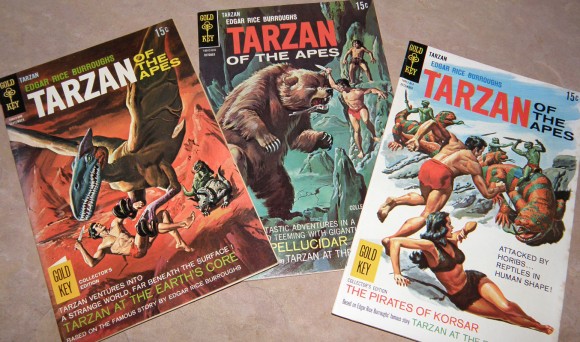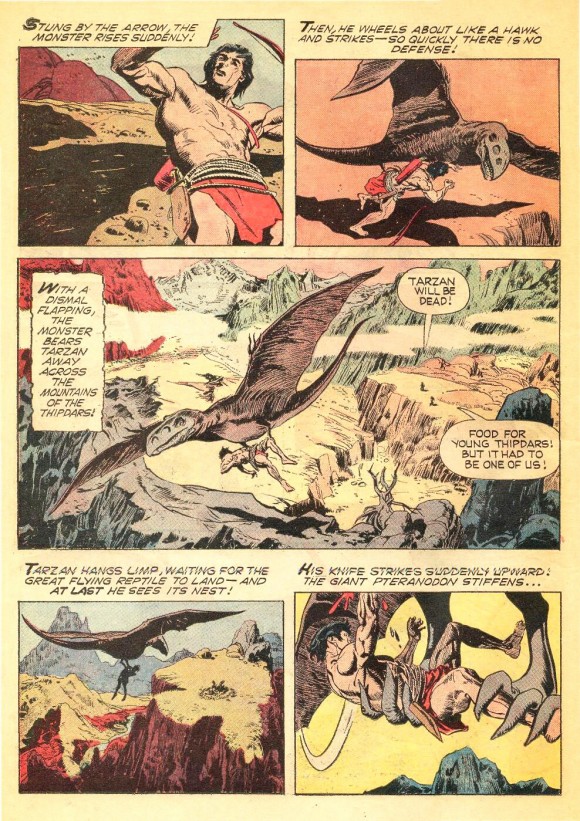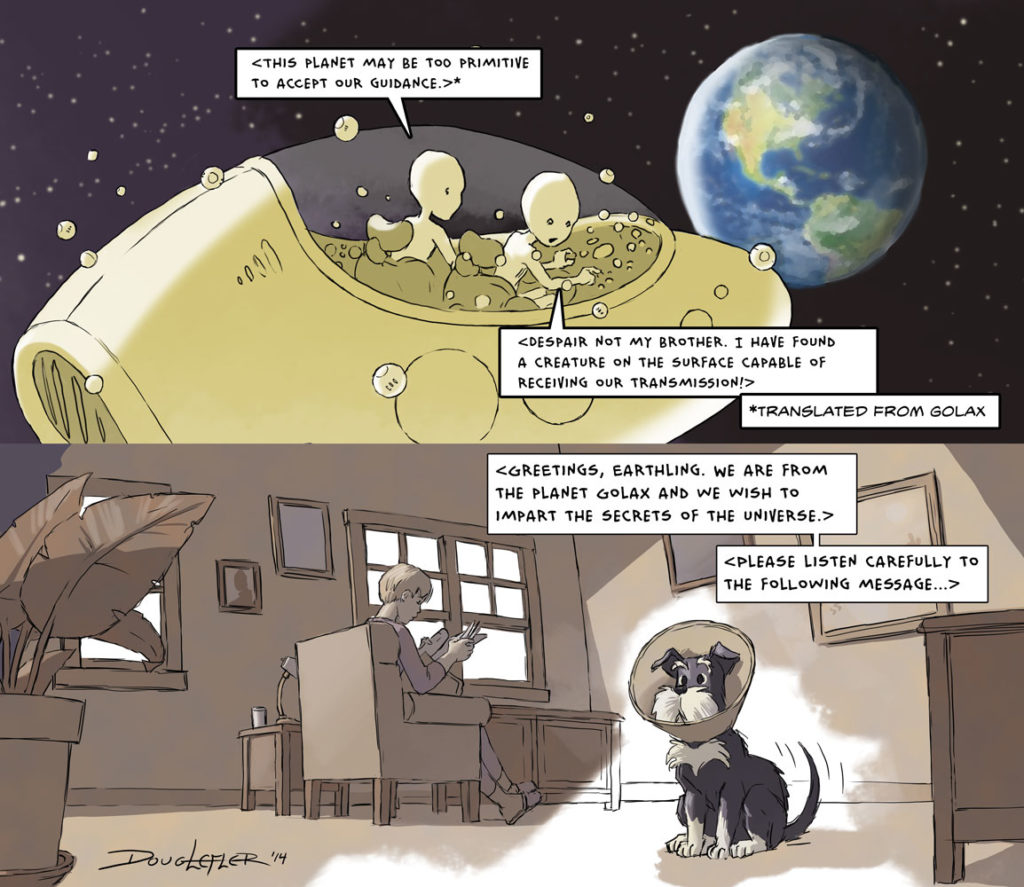“Twen and the Carnivorous Plant”
The Heart of the Hollow World
by Doug Lefler
If dinosaurs, robots and drilling machines aren’t enough for you I’m adding giant carnivorous plants to the storyline of The Heart of the Hollow World. What more do you want? Why wait? Start read start reading NOW! (at scrollon.com/hollow-world/). Or better yet, download the Scrollon App and read it on your iOS device.
Whew! Enough salesmanship. Now I’m going back to drawing.

I didn’t own many comic books as a child (my parents considered them a waste of pocket change), but these three Gold Key collector editions featuring Tarzan of the Apes were the pride of my limited library. Not having a collector’s mentality, books were utilitarian things to me, and comic books were my art classes. They were studied, copied and occasionally traced until the covers tore from their staples and pages fell to ruin.
It’s hard to express the sensation I felt when I re-acquired the three issue arc of “Tarzan at the Earth’s Core”, decades after my original copies were swallowed by time, neglect and the distraction of growing up. With the turn of each page I said “Ah, I remember you,” as I would when meeting a long lost friend, and realized I held in my hands the birth of my fascination with sequential drawing.
I only just learned the artist was Doug Wildey, who also created the Jonny Quest TV show for Hanna Barbera in 1964. He died in 1994, so I missed my chance to track him down and thank him for introducing me to the fundamentals of visual storytelling.

This is Twen, who is soon to make her appearance in The Heart of the Hollow World.
Last night I got a good night’s sleep. Never let it be said I’m not willing to try new things. Tomorrow morning I leave for San Diego. Anyone at Comic-Con this year stop by the Scrollon booth 1221/1223.
This is just the beginning of Emery’s trouble with dinosaurs. Read his continuing adventures at www.scrollon.com.

t isn’t all fun and games and messages from outer space. There are times when wearing the Cone of Shame is no darn fun.
